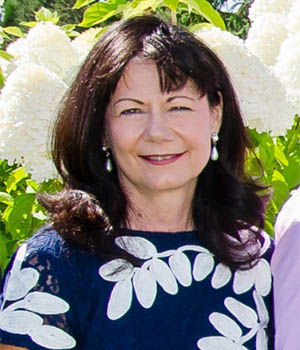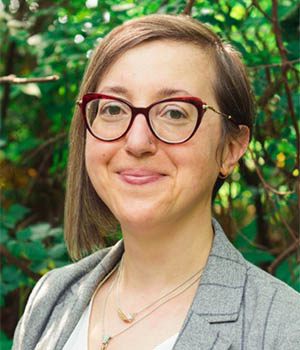The 2022 CIHR Institute of Aging Betty Havens Prize for Knowledge Mobilization in Aging
The CIHR Institute of Aging Betty Havens Prize for Knowledge Mobilization in Aging honors Betty Havens, a leading gerontologist who was committed to improving the lives of seniors with notable achievements in health services research on the aging process. This prize, based on nominations of applicants by peers, teams or organizations, recognizes an individual, team or organization that has advanced the mobilization of research in aging at a local or regional level.
Recipients

Dr. Pia Kontos
Dr. Pia Kontos is a Senior Scientist at KITE Research Institute, Toronto Rehabilitation Institute-University Health Network and Professor in the Dalla Lana School of Public Health, University of Toronto.

Dr. Sherry Dupuis
Dr. Sherry Dupuis is a Professor in the Department of Recreation and Leisure Studies and Co-Director of the Partnerships in Dementia Care (PiDC) Alliance at the University of Waterloo.

Dr. Alisa Grigorovich
Dr. Alisa Grigorovich is an Assistant Professor in the Recreation and Leisure Studies Department and Master of Applied Gerontology program at Brock University and an Affiliate Scientist at KITE Research Institute.

Dr. Julia Gray
Dr. Julia Gray is an Assistant Professor, Teaching Stream in health humanities in the Department of Health and Society at the University of Toronto Scarborough and is an artist-practitioner (playwright/theatre director).

Dr. Christine Jonas-Simpson
Dr. Christine Jonas-Simpson is an Associate Professor of Nursing at York University.
This team shares an interest in understanding the socio-cultural dimensions of aging and disability, with attention to the role of stigma associated with dementia and health inequities across diverse care settings. They use arts-based and digital mediums to challenge stereotypes and prejudices about dementia, to effect changes in policies and practices that discriminate against people living with dementia, and to inspire alternative ways of understanding and supporting people to live well with dementia.
Research Summary
The collaborative work of this team has focused on the following: 1) stigma associated with dementia and the consequent social exclusion and marginalization found at both macro levels of political economy and culture, and the micro-level of embodied and embedded practices; 2) relational citizenship which integrates insights from the fields of embodiment and dementia, citizenship, and human rights to address issues of social justice regarding the recognition and entitlements of individuals living with dementia; and 3) the development, implementation, and evaluation of arts-based knowledge mobilization initiatives (e.g. research-based theatre, film) to bridge research on stigma-related inequities with the practice and ethics of dementia care. This team not only makes full use of the power of the arts to mobilize critical social science and humanities research on stigma, social exclusion, and relationality, but their initiatives are highly participatory and support authentic collaborative decision-making with people living with dementia. Examples include the research-based drama Cracked: new light on dementia and the immersive online resource Dementia in New light: A Digital Learning Experience. These and many other collaborative initiatives of this team have significantly contributed to the field of ‘liberation arts’ (i.e., the use of the arts to challenge discrimination and to imagine and effect more equitable solutions) and also have facilitated new possibilities for supporting, caring, and relating with people living with dementia.
- Date modified: